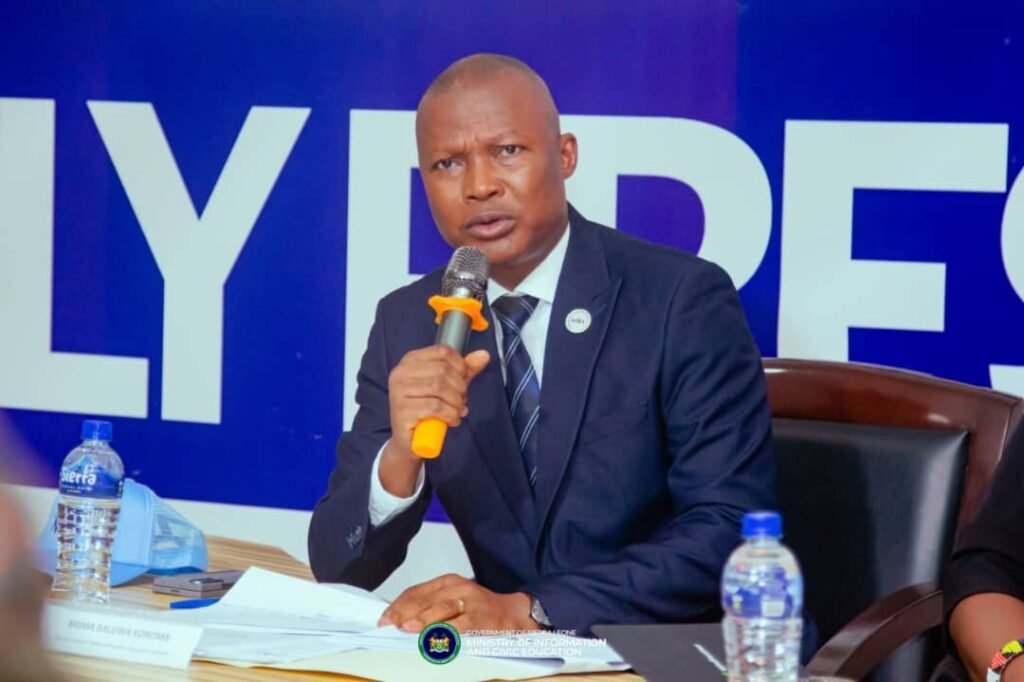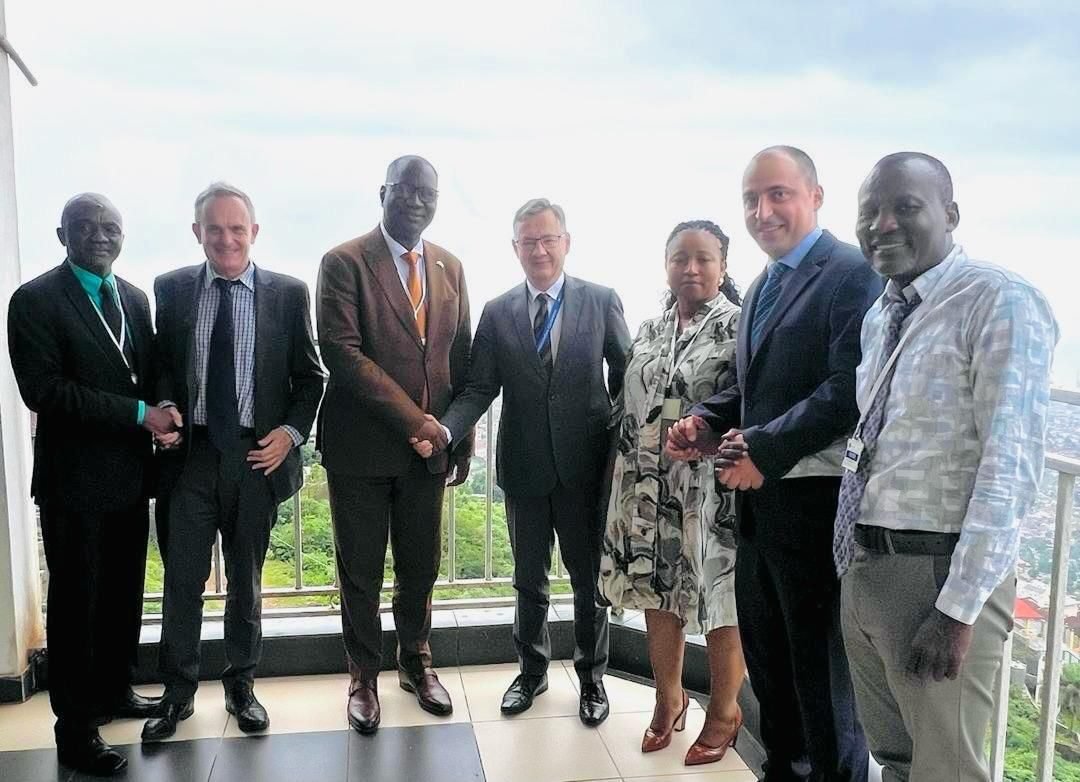NPRA Director Highlights Fuel Reforms
By Sulaiman Jalloh

Brima Baluwa Koroma, Director General of the National Petroleum Regulatory Authority (NPRA), has reaffirmed his institution’s commitment to overhauling Sierra Leone’s petroleum industry.
Speaking at the Government Weekly Press Briefing on Tuesday, July 15, 2025, at the Miatta Conference Centre, Youyi Building, DG Koroma detailed the NPRA’s transition from the former Petroleum Regulatory Agency (PRA) and addressed public concerns over fuel pricing disparities across the country. He described the transformation as a “fast-track graduation,” positioning the NPRA to deliver more effective regulatory oversight and service.
Highlighting sector progress under President Julius Maada Bio’s administration, DG Koroma noted that five years ago, Sierra Leone’s fuel stock levels only lasted 10 to 14 days, causing frequent import disruptions and rationing. At that time, dealers were limited to purchasing restricted quantities, creating market uncertainty and affecting consumers nationwide.
Under NPRA’s leadership, however, the petroleum sector has seen major reforms aligned with three strategic objectives: liberalizing the market, expanding downstream infrastructure, and enhancing petroleum revenue generation while safeguarding government taxes. According to DG Koroma, daily fuel consumption has increased from 1 million to 1.3 million litres, and national storage capacity has risen to 278,000 tons more than double the capacity from five years ago. The sector now contributes 12% of total government revenue, with steady annual growth since 2018.
As part of its reform strategy, the NPRA has revised the fuel pricing formula in collaboration with the Ministry of Finance and the World Bank to bring it in line with international standards. Addressing recent concerns, DG Koroma explained that a ceiling price of NLe 27.4 per litre has been set, and he urged the public to report any fuel station charging above this rate. He emphasized the uniqueness of Sierra Leone’s pricing model: “Uniform fuel pricing across the entire country is not happening anywhere in the world except Sierra Leone.”
The recently enacted NPRA Act, which replaces the outdated 2014 PRA Act, introduces stronger regulatory measures to stabilize the petroleum industry. Key provisions in Part 3, Sections 12 and 54 require the NPRA to maintain a strategic national fuel reserve and mandate that all licensed operators keep minimum stock levels. “Today, we have fuel stock that will last six to seven weeks a level of reserve never before achieved in Sierra Leone,” DG Koroma stated.
The Act also removes barriers to market entry, increasing the number of licensed players from just three to ten, including several youth-led and local enterprises an expansion that reflects the government’s broader push for inclusivity and competition in the sector.
Addressing misinformation about pricing, DG Koroma clarified that some dealers now sell fuel at NLe 25 or NLe 26 per litre due to competitive market dynamics introduced by the reforms. “Five years ago, no dealer voluntarily reduced fuel prices,” he noted, challenging the media to provide evidence of such behavior prior to the current administration.
He concluded by appealing for public and media support to preserve the agency’s gains, stressing that the NPRA’s interventions have eliminated past problems such as rationing. “Consumers can now buy the quantity they want at any station without restrictions,” Koroma said. “Let us work together to protect the public interest.”
Stay Updated! 📩
Subscribe to our newsletter for the latest news, insights, and exclusive updates. Don't miss out




